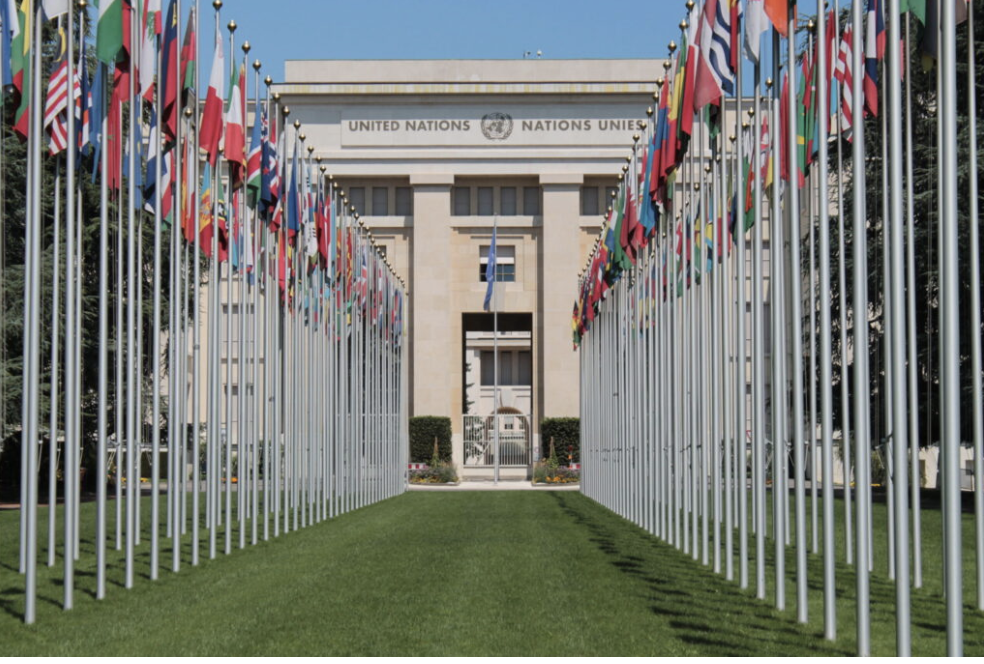Gaza and the Failures of International Liberalism

By Luke McMahan/ Arab America Contributing Writer
Despite a steady stream of rulings from respected international organizations condemning Israeli violence and aggression in Palestinian land, there is no end in sight to either the invasion or its US support. This seems to signal a failure in such organizations and the liberalist philosophy behind them in overriding the desires of their most powerful members in the name of mutual global benefits.
Liberalism is one of the basic and most essential schools of international relations. To put it simply, compared to its pessimistic sister realism, which holds that states act as self-interested atomic bodies angling for power in a world without centralized international control, liberalism reasons that states trend towards global cooperation and collective benefits. To achieve this, liberalists believe in the role of nongovernmental bodies and international organizations, like the United Nations. In response, those of a more realist persuasion would argue that while international organizations present the facade of general cooperation, the powerful actors still hold the reins and will prevent the realization of globally supported courses of action if it does not suit their interests. This seems to be precisely what is happening in the UN and other like bodies at the moment, with the US vetoing or simply ignoring any consequential condemnation or significant obstacle placed on Israel’s brutal massacre of Gaza.
The US has utilized its security council veto powers to shut down several proposed ceasefires in the UN since the beginning of the war, including one on October 18, just days after the conflict began. In mid-April, the US alone vetoed providing full membership for Palestine in the organization. Apart from America, 12 security council states supported the resolution and two abstained. This is merely another instance of a long American tradition of using its influence to avoid almost any UN resolution not in line with Israeli desires. Of 36 security council vetoes since 1945 involving Israeli-Palestinian relations, the US is responsible for 34, including resolutions merely condemning excessive Israeli force and calling for peace during the Great March of Return and the Second Intifada. Essentially every significant case of international support behind Palestinian statehood or the cessation of Israeli aggression in the region has died on the UN floor.
Two cases in the International Court of Justice, one recently ruled upon and one still in trial, stand as more examples of global outrage towards the conflict unheeded by the United States or Israel. On July 19, the ICJ produced an 83-page report detailing the long list of international law violations committed by Israel in Palestinian territories, including the expansion of settlements, which has risen significantly in recent years, destruction of homes, and displacement of the native population. It stated that the current invasion amounts to racial persecution and apartheid as well as posing major international threats. Having officially declared Israel’s presence an illegal occupation, the ICJ urged an end to this situation as “rapidly as possible” and placed the impetus on the Security Council to carry this out. South Africa’s ICJ case against Israel, accusing them of committing genocide, is still ongoing.
But before the ICJ, Francesca Albanese, appointed the UN Special Rapporteur on Palestine in 2022, has relentlessly criticized Israel’s occupation and current campaign in Gaza since entering office. She has defined Israel as an apartheid state, supports Palestinian statehood, and in March officially declared Israel’s invasion as genocidal. Her words have gained support from significant international scholars and organizations before receiving their greatest affirmation yet after the ICJ’s ruling. But this only brought her further baseless virulence from Israel, who claimed that she is anti-semitic and “complicit in terror.” Albanese is one of many UN officials to receive the same treatment. But not only do such officials endure unfounded criticism, but are prevented from performing their duties to the full extent as Israel regularly denies access to UN missions reviewing the state of human rights in the territories.
But not only is Israel now hindering UN missions, but actively refusing to cooperate with them at all. Recently, Israel’s parliamentary body, the Knesset, voted to label UNRWA a terrorist group. While relations between the two have been tense for some time, accusing an aid group focused on educating and caring for refugees, especially one funded by the UN, of colluding and actively employing terrorists is unprecedented. During the most dangerous conflict in recorded history with regards to aid workers, this is one more instance of abject defiance towards international cooperation. Even the United States defended UNRWA in this case; although Benjamin Netanyahu’s trip to Congress and speech in front of a rousing crowd of politicians dashed any hope of further condemnation or restriction.
Evident by these examples and many more, international organizations have failed to enact significant change throughout decades of Israeli violence. Either the US vetoes resolutions complicating campaigns of Israeli violence and unlawful expansion in Palestinian territory; or international condemnations of such actions are simply ignored. Now, Israel officially considers the arm of one of these organizations to be terrorists. Liberalism’s promise of mutual benefit via international cooperation rings false on the ears of the nearly 40,000 dead in Gaza. Despite providing frameworks for nominal collaboration, the UN still falters under the might and influence of the very country in which it began. It is still unknown how the continuation of these obvious failures will affect the UN and organizations like it, as Gaza is only one of the major problems facing them. Regardless, unceasing Israeli violence on Palestinians serves to confirm realists’ suspicions of international organizations’ inability to enact wide scale change when truly necessary.
Sources:
https://mondediplo.com/2024/07/06un
https://www.aljazeera.com/opinions/2024/7/25/the-icj-compelled-the-international-community-to-take-action-against-israel
https://www.ft.com/content/dbc5901e-e6af-49af-8360-a828ab071827
US defends UNRWA after Israel moves to deem it terror group
https://www.aljazeera.com/news/2023/10/26/how-the-us-has-used-its-veto-power-at-the-un-in-support-of-israel
https://apnews.com/article/un-vote-palestinian-membership-us-veto-8d8ad60d8576b5ab9e70d2f8bf7e2881
https://press.un.org/en/2024/ga12586.doc.htm
https://news.un.org/en/story/2023/10/1142507
Check out our Blog here!








